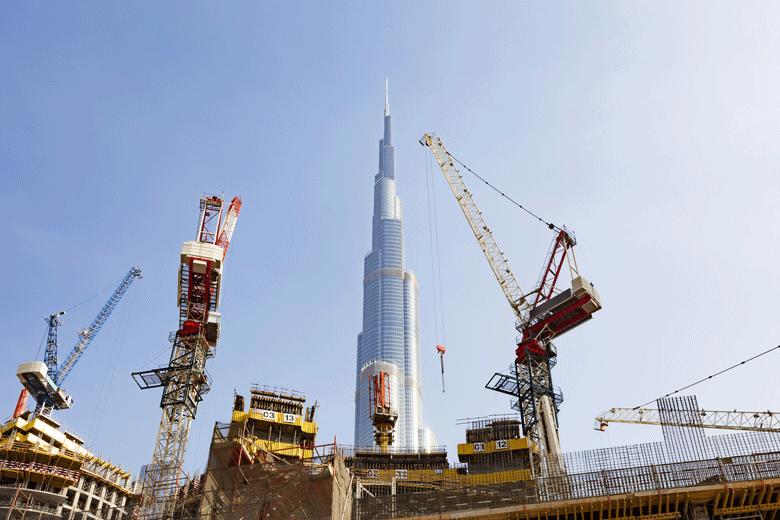

Dubai's budget for 2020 will do little to improve the mood in the Dubai construction sector.
Although the budget, which was approved by the emirate's ruler Sheikh Mohammed bin Rashid al-Maktoum on 29 December, includes record spending of AED66.4bn ($18.1bn), planned infrastructure spending is down for the second consecutive year.
This is bad news for Dubai construction.
Infrastructure spending for 2020 will be AED8bn, which is about 12 per cent of total planned government spending for the year. This figure is down from the 13 per cent of the AED9.2bn of spending that was allocated for infrastructure in 2019.
Budgeted infrastructure spending in Dubai peaked in 2018 when it reached AED11.9bn. The 2017 budget had infrastructure spending of AED8bn – the same level as has just been announced for 2020.
Dubai construction
As with the 2019 budget, Dubai's 2020 spending programme has a commitment to proceed with public-private partnership (PPP) projects. Outside of the power and water sector however these projects are generally expected to be tactical and of limited scale.
Although government spending is important for Dubai construction, it is not the key driver for the industry. Over the past 15 years, the largest spenders on construction have been private or semi-private sector real estate clients.
Companies such as Emaar, Nakheel, Dubai Properties, Meydan and Meraas have been busy developing master planned projects that have given construction companies a bumper pipeline of opportunities.
That pipeline is now limited.
After years of frenetic building and delivering new projects, Dubai’s real estate market is over supplied.
In late August last year, UAE Vice President, Prime Minister and Ruler of Dubai Sheikh Mohammed bin Rashid al-Maktoum addressed the problem by forming a higher committee for real estate.
The expectation is that supply will somehow be controlled. This will likely mean fewer projects being delivered in the future and therefore an inevitable reduction in new project opportunities for contractors.
Industry reponse
The response from Dubai’s construction sector has so far been two-pronged.
First, contractors have started looking at different markets. In particular geographies such as Saudi Arabia that are planning to press ahead with new projects over the coming five years.
At the same time, contractors are adjusting to lower revenues from the domestic market by cutting costs and shedding resources as projects are completed.
That trend has already started with contractors in the emirate downsizing their businesses.
The process is a challenging one, especially when it comes to retrenching staff. But limited and more targeted spending from both the government and the private sector means that Dubai’s contractors must get lean in 2020 if they are to survive.
You might also like...

Rainmaking in the world economy
19 April 2024

Oman receives Madha industrial city tender prices
19 April 2024

Neom seeks to raise funds in $1.3bn sukuk sale
19 April 2024

Saudi firm advances Neutral Zone real estate plans
19 April 2024
A MEED Subscription...
Subscribe or upgrade your current MEED.com package to support your strategic planning with the MENA region’s best source of business information. Proceed to our online shop below to find out more about the features in each package.




